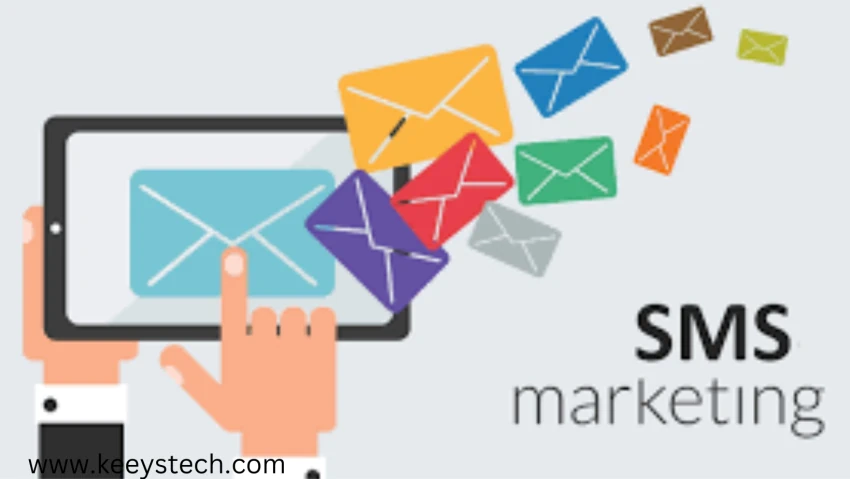Table of Contents
Everything You Need To Know About SMS Marketing
SMS Marketing offers a quick and efficient means of connecting with your desired audience. It serves as an excellent avenue for promptly delivering messages, promotions, and updates directly to your customer base. If you’re interested in harnessing the advantages of this marketing approach, this blog post is tailored to your needs. Within these pages, we will delve into the fundamentals of SMS Marketing, its operational mechanics, and strategies to maximize its benefits. Continue reading to gain a comprehensive understanding of SMS Marketing!
What Is SMS Marketing?
SMS marketing, or short message service marketing, is the process of sending promotional text messages to customers and potential customers. It’s a great way to stay in touch with customers and create relationships with them.
As one of the most direct forms of communication, SMS marketing can be used to inform customers about promotions, sales, new products, and more.
Marketing strategy is typically used for two purposes: to reach out to existing customers and to acquire new customers. By using SMS marketing, you can engage with your current customer base and bring them back to your store or website.
You can also use it as an acquisition tool, targeting new customers through promotional offers and discounts.
The beauty of marketing strategy is that it’s quick, effective, and cost-efficient. Unlike other forms of digital marketing like email marketing or online advertising, SMS marketing is typically much cheaper and allows you to reach a large audience quickly.
You don’t need any technical knowledge or special software, either; all you need is a phone or mobile device and an SMS platform.
Using an SMS platform, you can send personalized messages to your contacts. You can also track responses, measure success, and tweak campaigns to make sure they are as effective as possible. With SMS marketing, it’s easy to stay in touch with your customers, build relationships, and grow your business.

How Does SMS Marketing Work?
Marketing strategy is a great way to reach potential customers and keep them engaged with your brand. With SMS marketing, you can send promotional messages, discounts, updates, and more to your target audience in a matter of seconds.
But How Does It Work?
The first step in getting started with SMS marketing is to create an account with a messaging provider. This allows you to send messages to contacts that have opted-in to receive your messages.
Once you have an account, you will be able to create lists of contacts, set up auto-replies for when someone sends a message to your business number, and design campaigns.
Once you have your contacts and messages ready to go, you can begin sending out messages to your subscribers. Your messages can be sent manually or on a set schedule.
You can also set up automated messages that are triggered by certain events, such as when a subscriber signs up for your newsletter or purchases something from your store.
Another way to make sure your messages reach their target audience is by segmenting your lists. This allows you to target different groups of people with different messages. For example, you can send out discounts to new customers, and discounts for returning customers.
A marketing strategy is a great way to engage with your customers and build loyalty. With the right messaging provider and the right strategies in place, you can reach the right people with the right message at the right time.
What Are The Benefits Of SMS Marketing?
SMS marketing is a powerful tool for businesses of all sizes to reach their customers. With its short and concise messages, Marketing strategy allows businesses to deliver timely and personalized messages directly to their customers’ mobile devices.
SMS marketing is one of the most cost-effective forms of marketing available and provides many benefits that other forms of communication may not offer. Here are just some of the reasons why businesses should consider using SMS marketing:
What Are The Best Practices For SMS Marketing?
SMS marketing is an effective and cost-efficient way to reach customers quickly and drive sales. It’s a great way to remind customers of special offers, launch new products, or just stay in touch.
However, it’s important to remember that people receive a lot of text messages, so following the best practices of SMS marketing will help ensure that your messages stand out.
Here Are Some Of The Best Practices For Marketing Strategy:
1. Make sure you have permission before sending a text message. Most countries require businesses to get permission from the customer before sending promotional messages.
2. Personalize your messages. This will help make the message stand out from other texts and help the customer feel more connected to your business.
3. Keep your messages short and to the point. Long messages can be difficult for customers to read and may be overlooked.
4. Offer value with each message. Whether it’s a discount, a new product launch, or another special offer, make sure you provide customers with something of value in exchange for their time and attention.
5. Track your campaigns and analyze the results. Tracking allows you to see what works and what doesn’t so you can make adjustments accordingly.
By following these best practices, you can ensure that your SMS marketing campaigns are successful and effective.

How Can I Get Started With SMS Marketing?
If you’re looking to get started with SMS marketing, the first step is to develop an effective strategy. You’ll want to consider who your target audience is, what type of message you’ll be sending, how often you’ll be sending messages, and what platform you’ll use for sending messages. Once you have a strategy in place, you can start to build out your marketing strategy plan.
When it comes to choosing a platform for sending messages, there are a few options available. For example, you could use an existing messaging service such as WhatsApp or Facebook Messenger, or you could build your own custom SMS platform. Many businesses opt for a custom solution so that they can tailor their messages to their specific needs.
When it comes to deciding what type of message you’ll be sending, it’s important to consider the content that will resonate best with your target audience. You should also think about whether you’re going to send promotional messages or provide valuable information and tips. In addition, you’ll need to consider how often you should send messages.
Once you have all of the above components figured out, you can start to implement your SMS marketing strategy. If you’re using a custom solution, you’ll need to code the message and send it from the platform of your choice. If you’re using an existing messaging service, you can use its built-in features to create and send messages.
Finally, when it comes to measuring success, you’ll want to track metrics such as open rates and click-through rates to understand how effective your messages are. This will help you optimize your campaigns. And ensure that you get the best results possible from your marketing strategy efforts.
Over To You
By following these steps, you’ll be well on your way to creating an effective SMS digital marketing strategy. That will help drive engagement and sales for your business.
